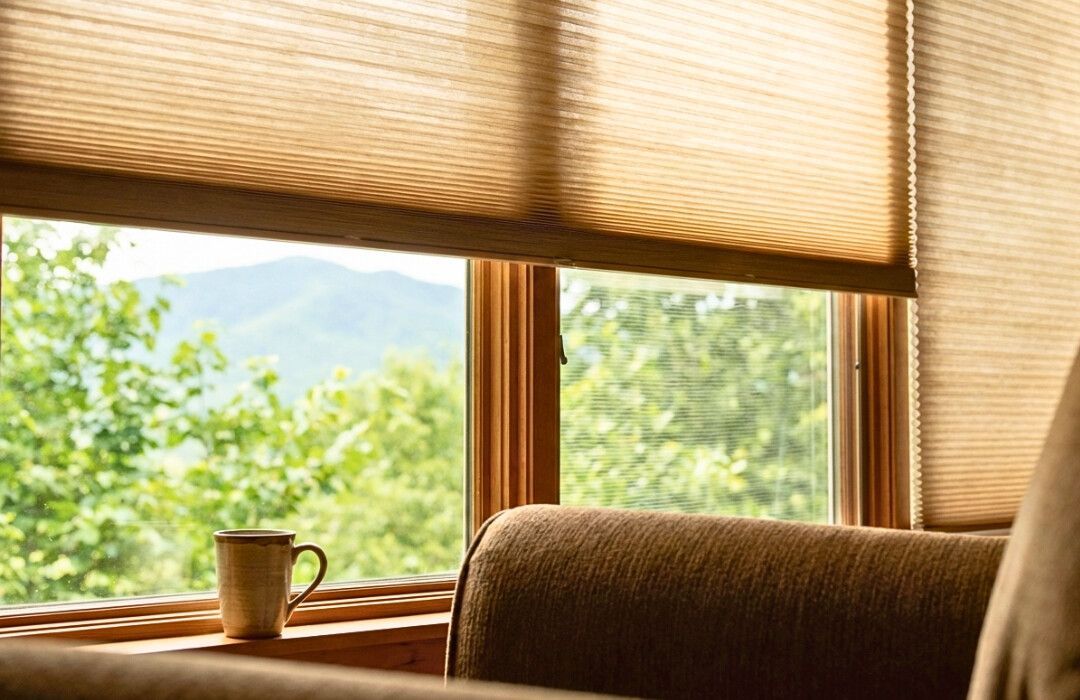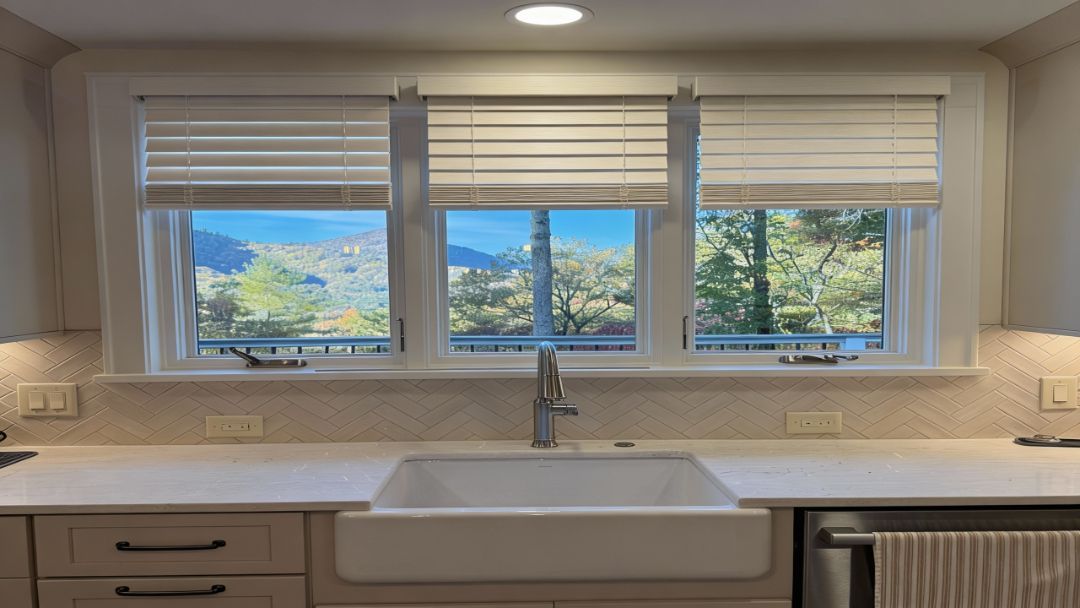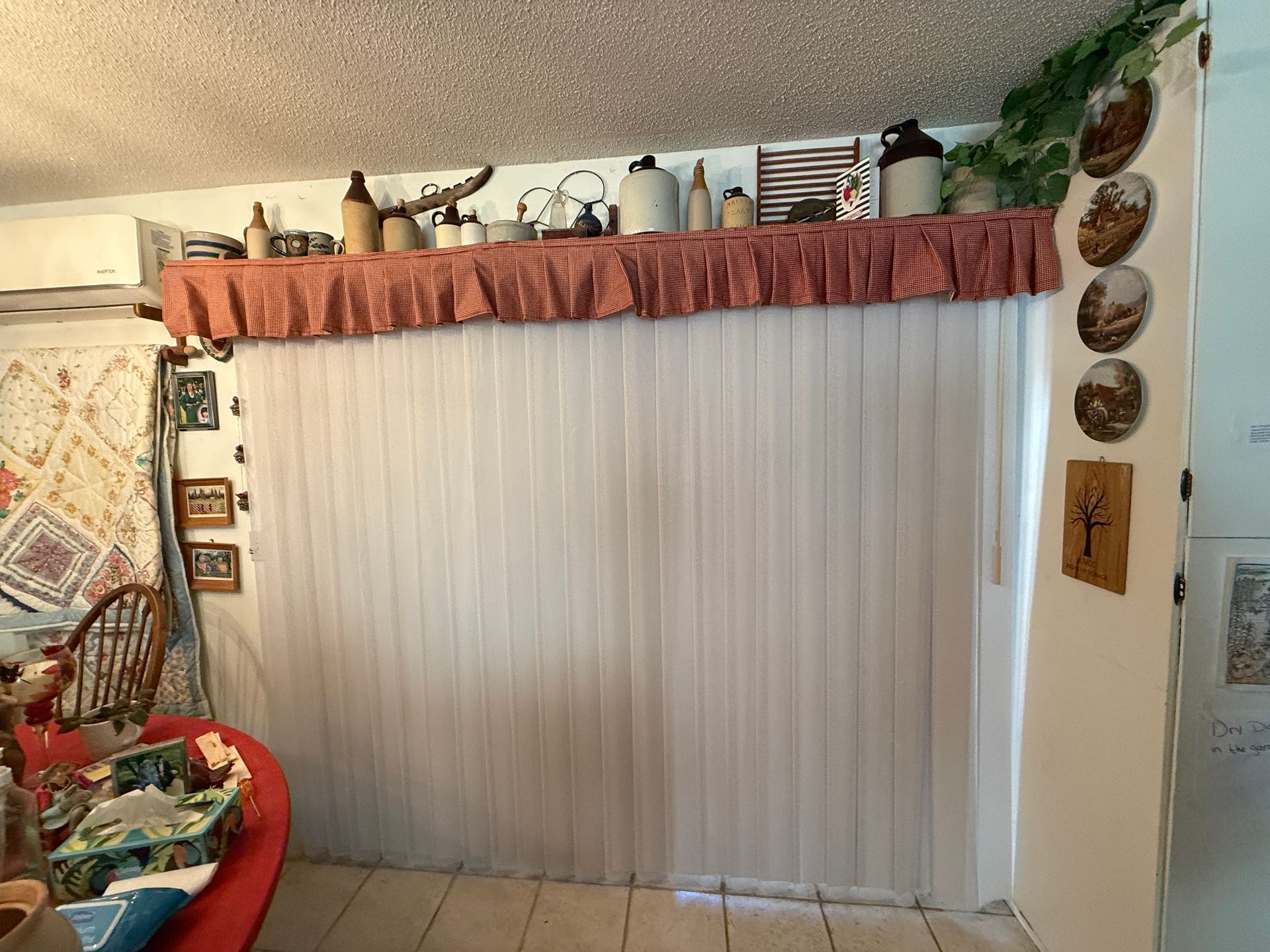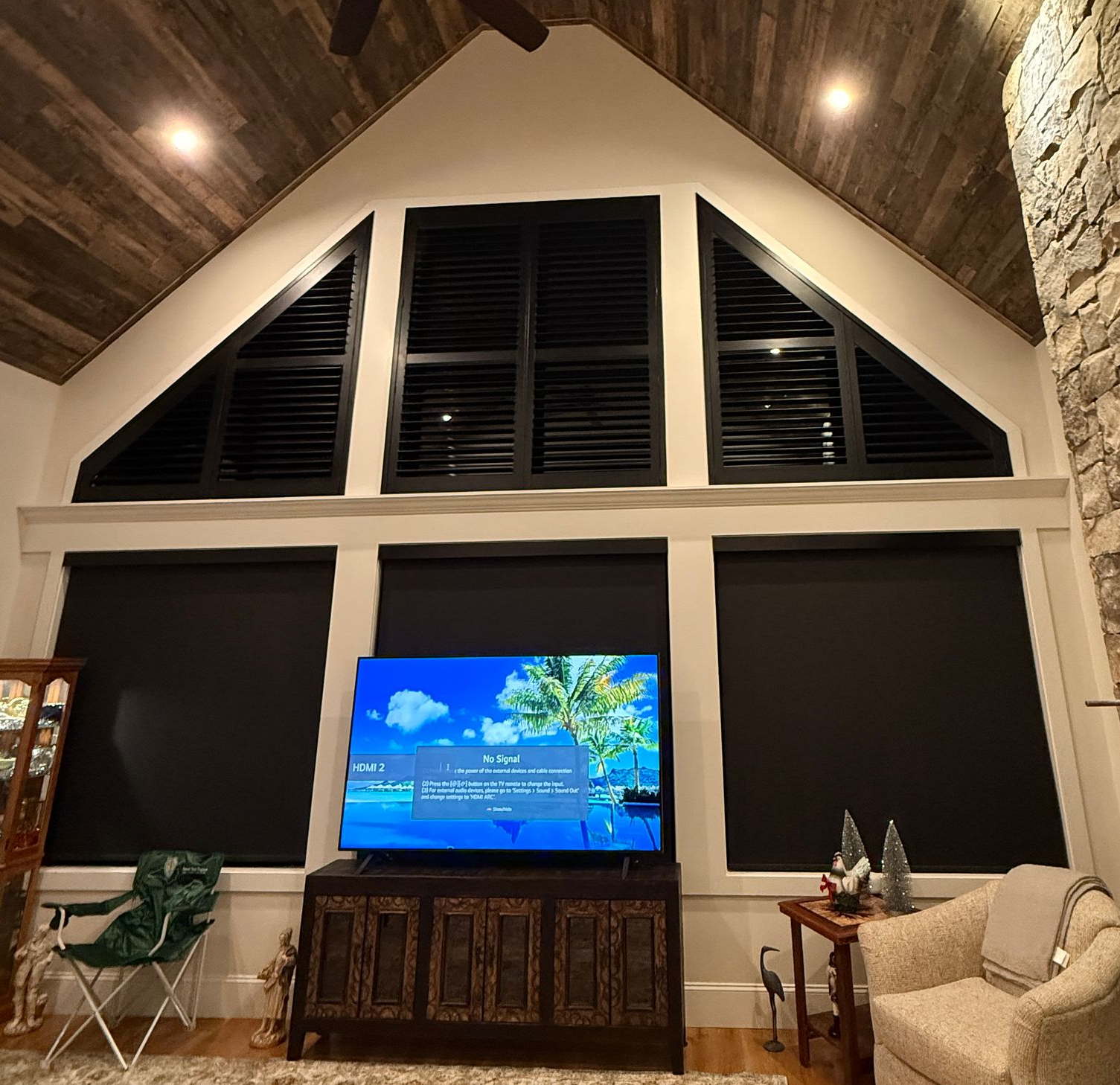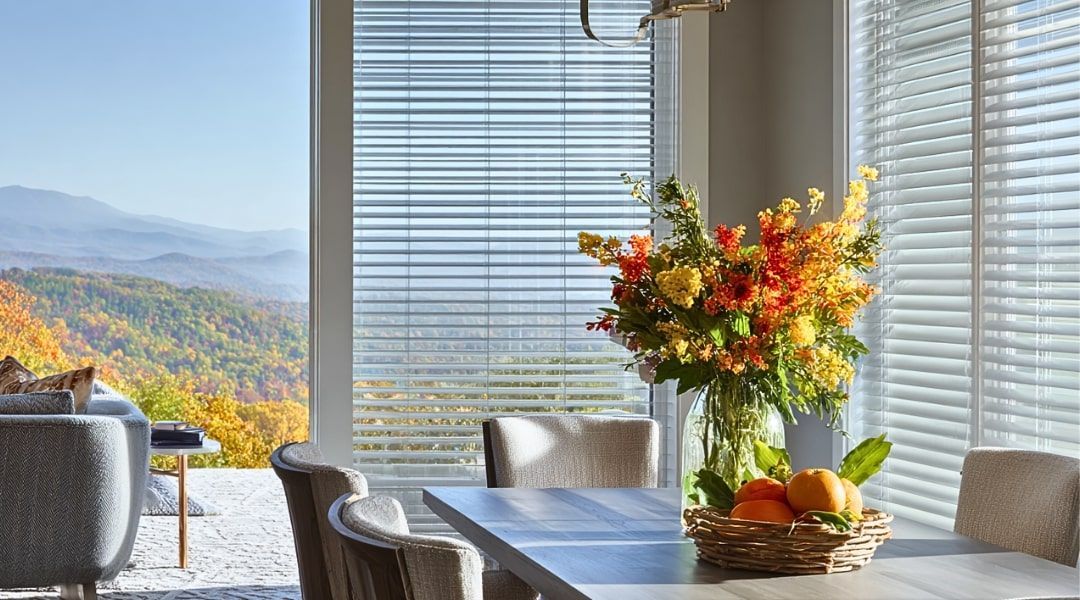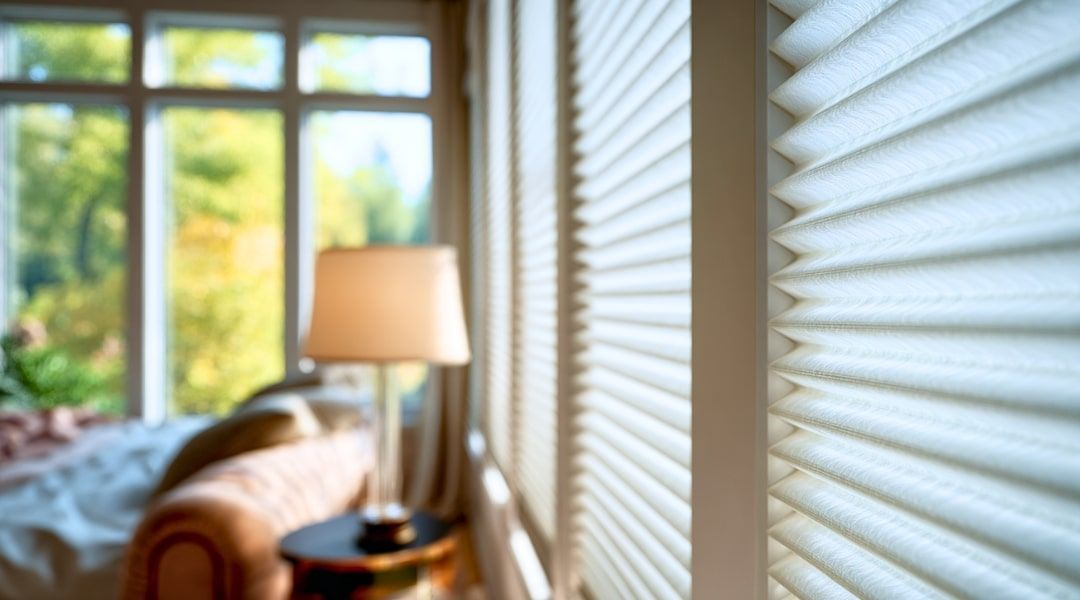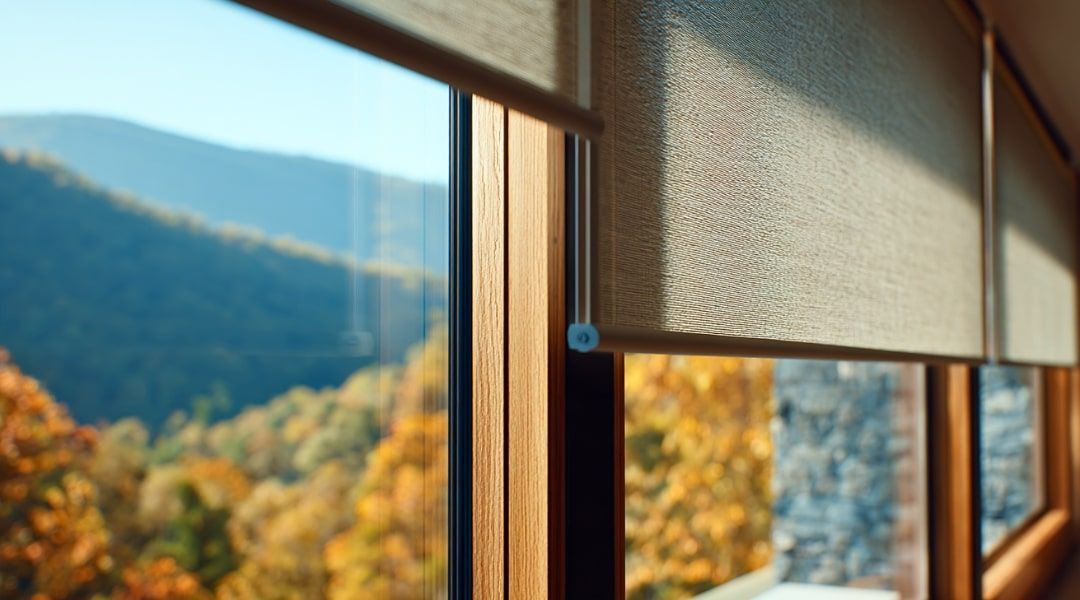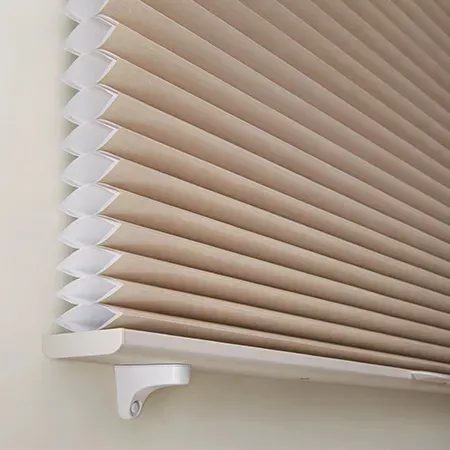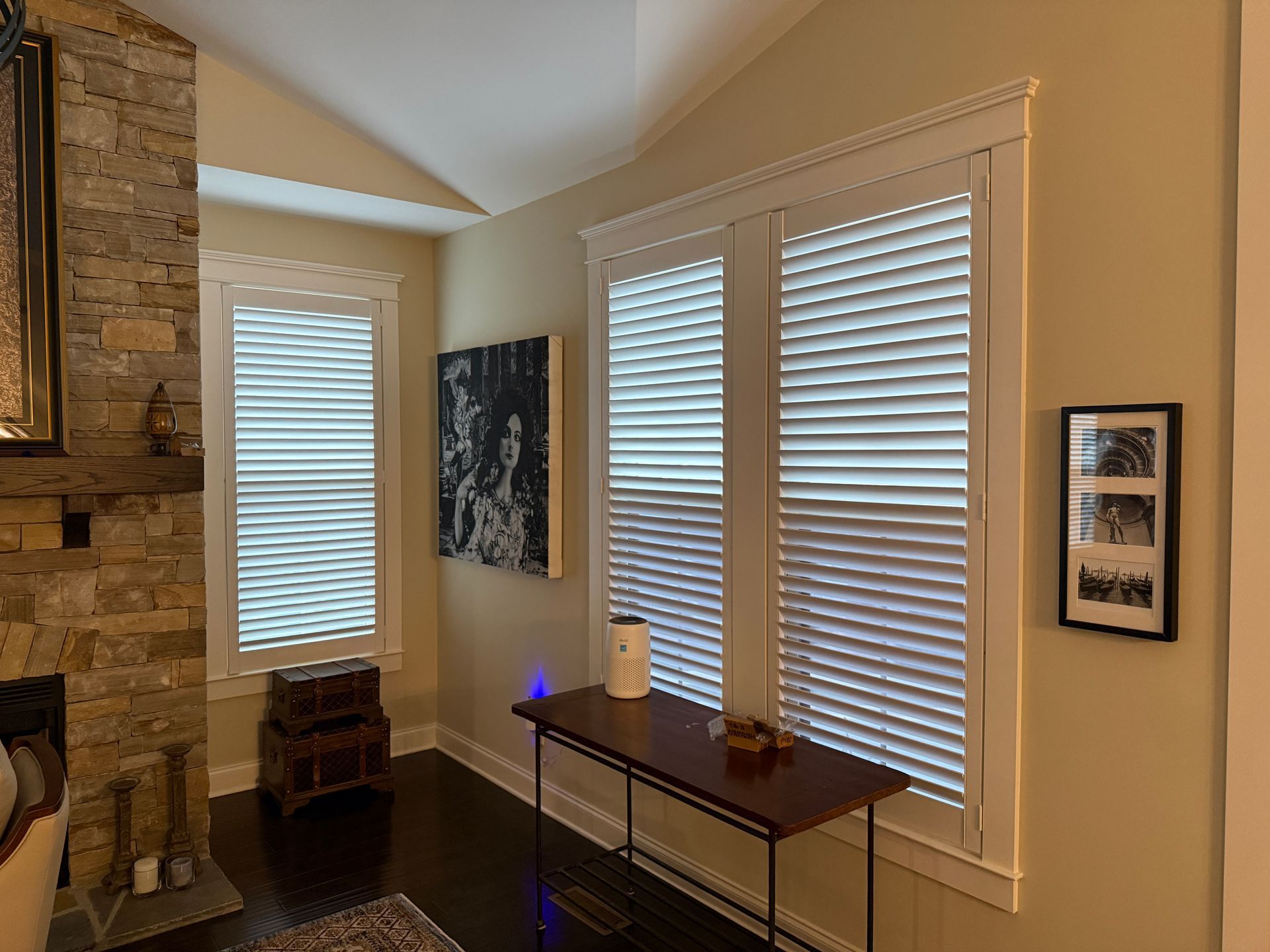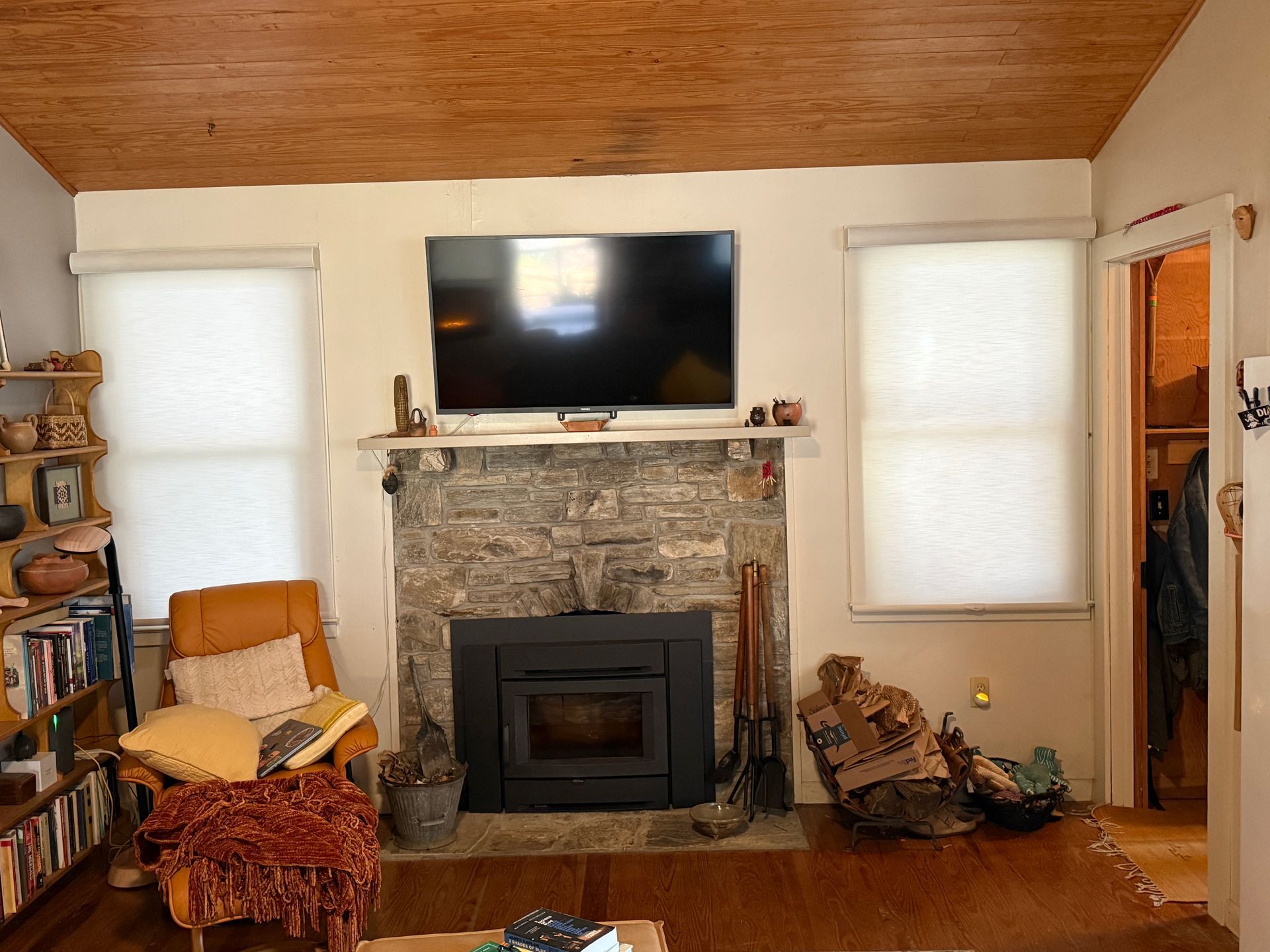Top Energy-Efficient Blinds for Year-Round Comfort in North Carolina
Top Energy-Efficient Blinds for Year-Round Comfort in North Carolina
TLDR;
The top energy-efficient blinds for year-round comfort in North Carolina are cellular shades, solar shades, motorized blinds, and insulated blinds. These
window treatments reduce heat gain in summer and prevent heat loss in winter, lowering energy bills and improving indoor comfort across all NC climate zones.
Why Energy-Efficient Blinds Matter in North Carolina
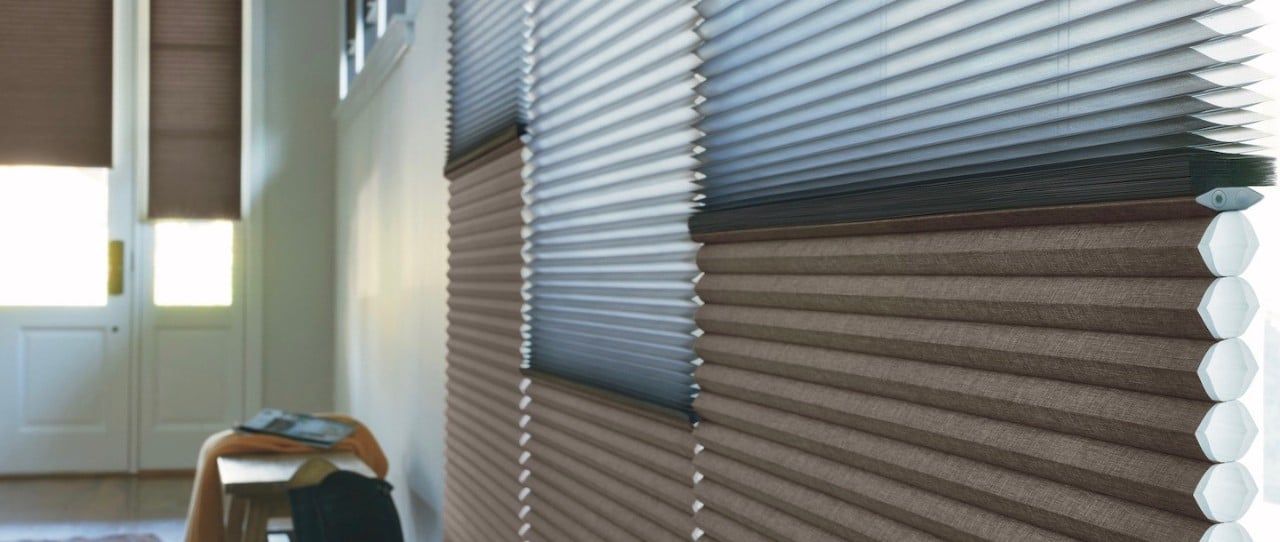
North Carolina experiences hot humid summers and moderately cold winters. This climate demands window treatments that work in both directions, blocking heat during peak summer while trapping warmth in winter. Without proper blinds, homeowners face higher cooling and heating costs, uncomfortable indoor temperatures, and UV damage to furnishings.
Energy-efficient blinds help by:
- Reducing HVAC load
- Controlling solar heat gain
- Minimizing heat loss during cooler months
- Improving insulation around windows
- Adding comfort and privacy
Love Is Blinds NC specializes in treatments designed to handle these challenges, tailoring solutions for different parts of the state.
North Carolina Climate and Energy Challenges
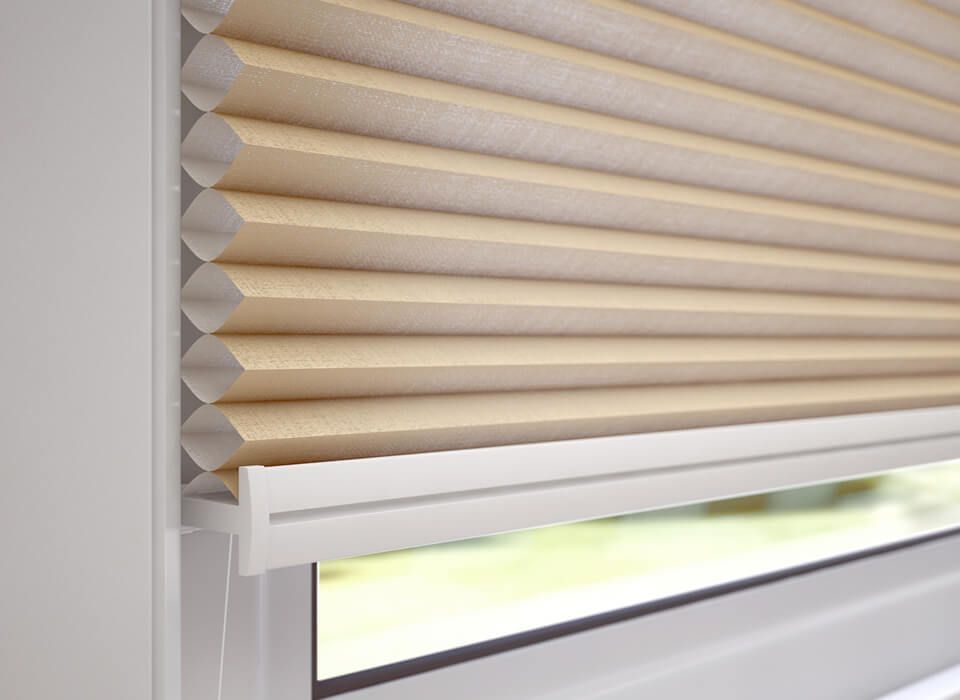
North Carolina has four climate zones, each with unique needs:
- Coastal region: high humidity, strong sun, salt air exposure
- Piedmont region: hot summers, moderate winters
- Foothills: wider seasonal swings, moderate humidity
- Mountains: colder winters, less direct sun, greater need for insulation
Homeowners across NC face:
- High cooling costs in July and August
- UV damage to floors and furniture
- Condensation or draft issues in older homes
- Seasonal discomfort without proper window insulation
What Makes a Blind Energy-Efficient
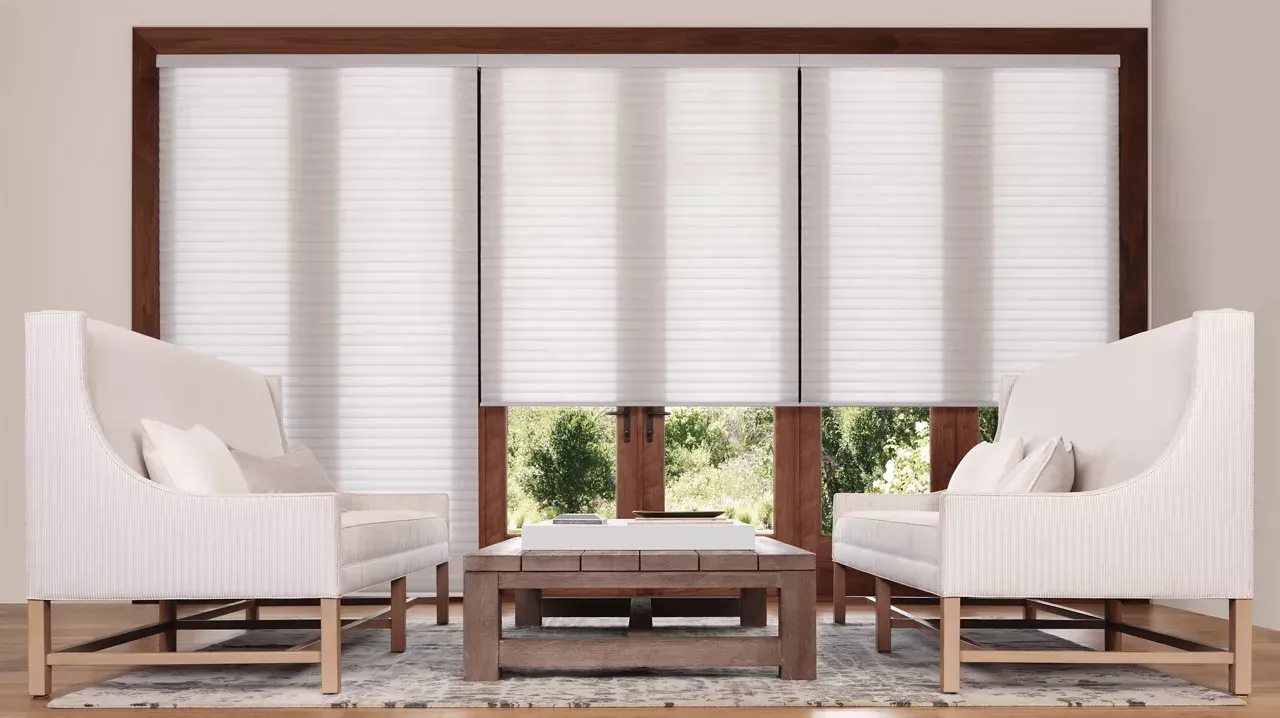
A blind is energy-efficient when it reduces unwanted heat transfer. Homeowners shopping for energy-efficient blinds should look for models with these traits:
- Cellular or honeycomb construction that traps air
- Double or triple cell layers for higher insulation value
- Reflective or light-colored backings to deflect summer heat
- Tight fit to the window frame to reduce gaps
- Thermal or blackout liners for insulation and light control
- Motorization to automate usage at optimal times
Proper installation is as important as material choice. Inside mounts that seal edges tightly are more efficient than loose-fitting blinds.
Best Energy-Efficient Blinds and Shades in North Carolina
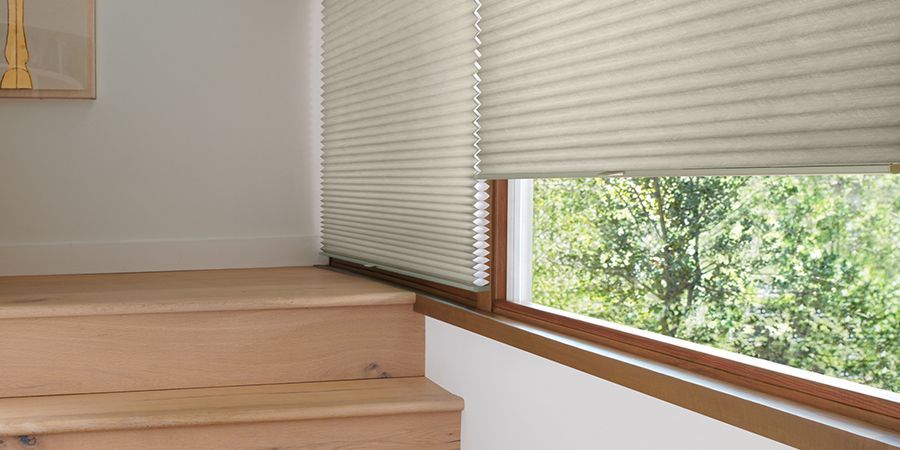
Cellular Shades
Cellular shades, also known as honeycomb blinds, are the top choice for insulation. The cells trap air like a buffer zone, cutting heat loss in winter and reducing heat gain in summer.
- Best for: Homes in both coastal and mountain areas
- Options: Single, double, or triple cell construction
- Benefits: Strong insulation, good light control, energy savings
Solar Shades
Solar shades filter sunlight while maintaining outward visibility. They reduce glare and block harmful UV rays.
- Best for: Coastal homes with strong sun exposure
- Options: Different openness levels from 1 to 10 percent
- Benefits: Reduce solar heat gain, protect interiors, maintain natural light
Roller Shades with Thermal Linings
Roller shades with added thermal backing combine simplicity with insulation. They are sleek and effective for modern homes.
- Best for: Raleigh and Charlotte homeowners with wide windows
- Benefits: Easy operation, thermal control, blackout options available
Plantation Shutters
Plantation shutters, especially wood or composite, provide strong insulation when closed tightly. Their durability makes them ideal for long-term use.
- Best for: Piedmont homes or traditional-style houses
- Benefits: Adds property value, sturdy, effective for insulation
Blackout Blinds
Blackout blinds block nearly all light and add an extra layer of insulation. They are effective in bedrooms or media rooms where both comfort and darkness are desired.
- Best for: Bedrooms and rooms facing west or south
- Benefits: Energy savings plus complete light blocking
Motorized or Smart Blinds
Motorized blinds adjust automatically based on sunlight or schedules. They seal tighter than many manual blinds and prevent air leaks.
- Best for: Hard-to-reach windows or energy-conscious homeowners
- Benefits: Convenience, efficiency, integration with smart home systems
Local Examples of Energy-Efficient Blinds in NC
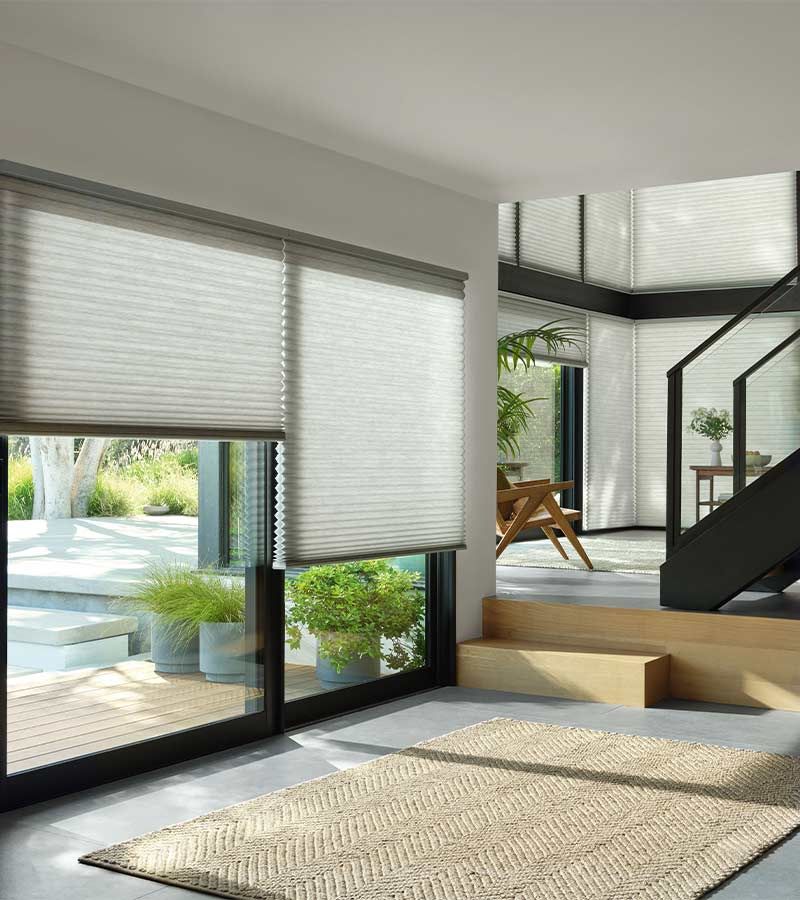
- A Raleigh homeowner with south-facing windows installed double-cell honeycomb shades and reduced cooling costs noticeably.
- A coastal Wilmington home with strong afternoon sun benefited from solar shades paired with light curtains, protecting furniture and lowering indoor heat.
- A mountain cabin near Asheville stayed warmer in winter with layered cellular shades and thermal drapery, reducing drafts and heating costs. Specialized spaces, like fitness rooms, also benefit from the right coverings—see our guide to
home gym window treatments for ideas that balance energy savings with light control.
Cost and Energy Savings in North Carolina
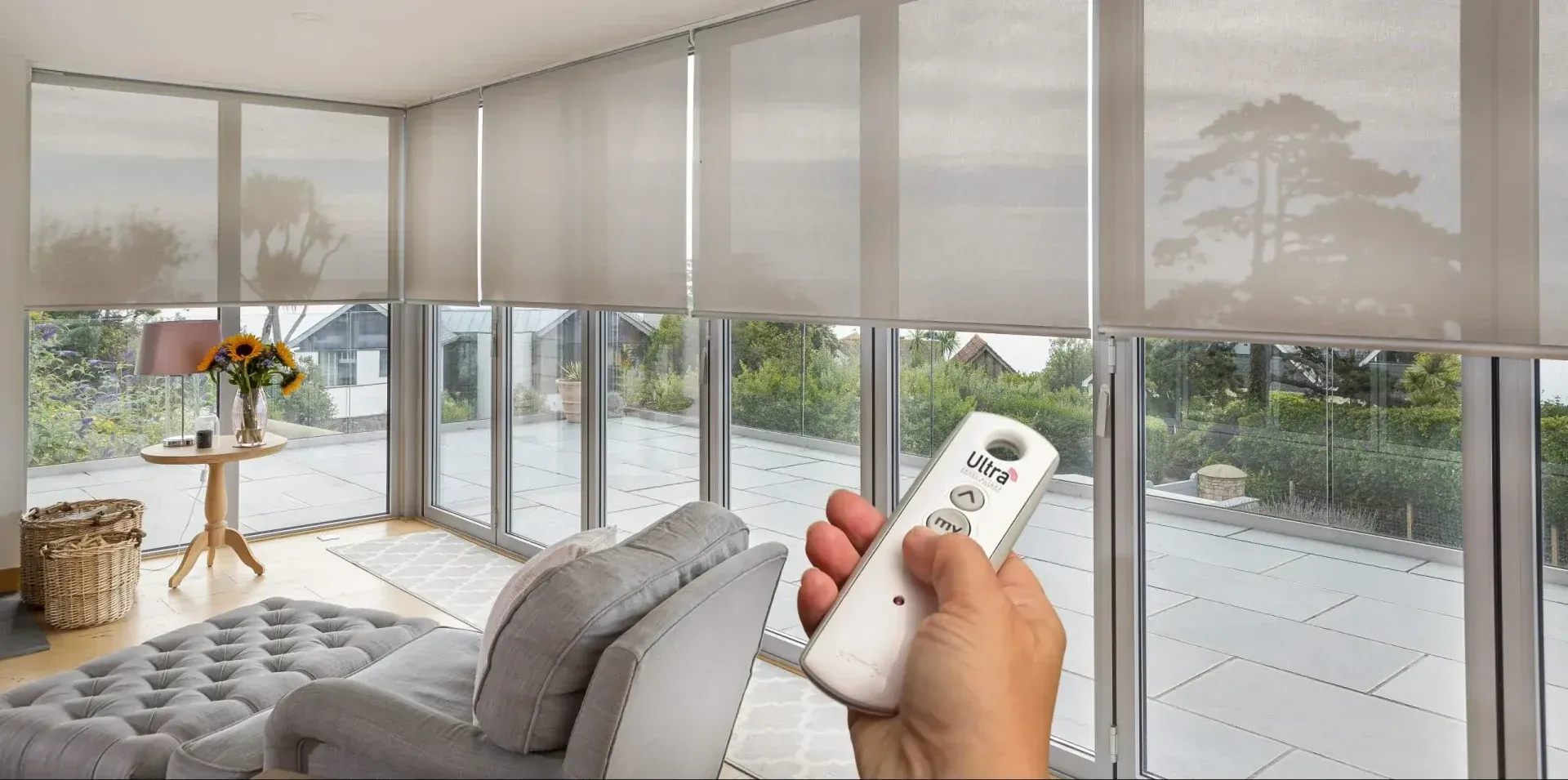
Energy-efficient blinds reduce heat gain and loss through windows by up to 30 to 40 percent. This translates into reduced HVAC usage and lower energy bills year-round.
Local utility companies like Duke Energy provide rebates for energy-saving upgrades. State-level efficiency programs sometimes include window treatments, especially if installed as part of whole-home energy improvements.
While motorized and smart blinds cost more upfront, the savings and comfort benefits often make them a worthwhile investment over time. To budget effectively, homeowners can review our breakdown of
custom blind pricing in NC before making a purchase.
How to Choose the Right Blind for Your Home
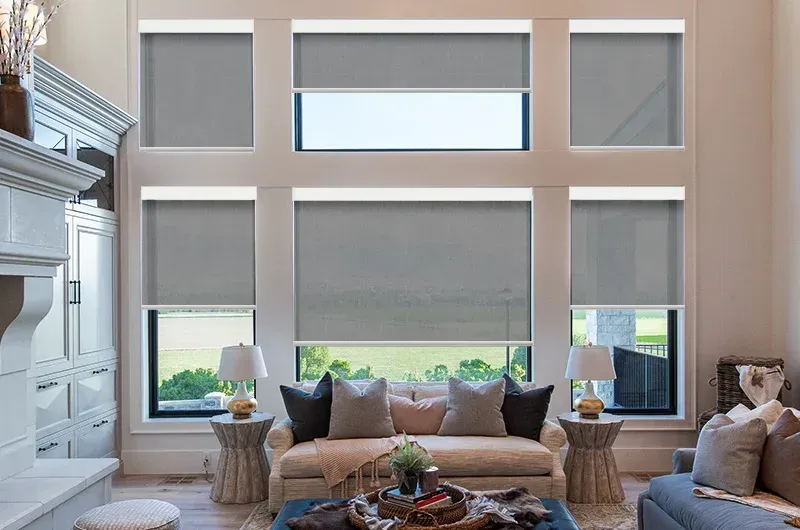
When selecting blinds for NC, consider:
- Window orientation: South and west windows need more sun protection
- Climate zone: Mountain homes benefit more from insulation, coastal homes from solar control
- Budget: Balance cost with expected energy savings
- Aesthetics: Match
blinds with room design
- Function: Decide between manual or motorized operation
Checklist for buyers:
- Measure windows accurately
- Match blind type to climate and exposure
- Consider layering blinds with curtains for maximum efficiency
- Review rebate options with your utility company
Maintenance and Longevity Tips
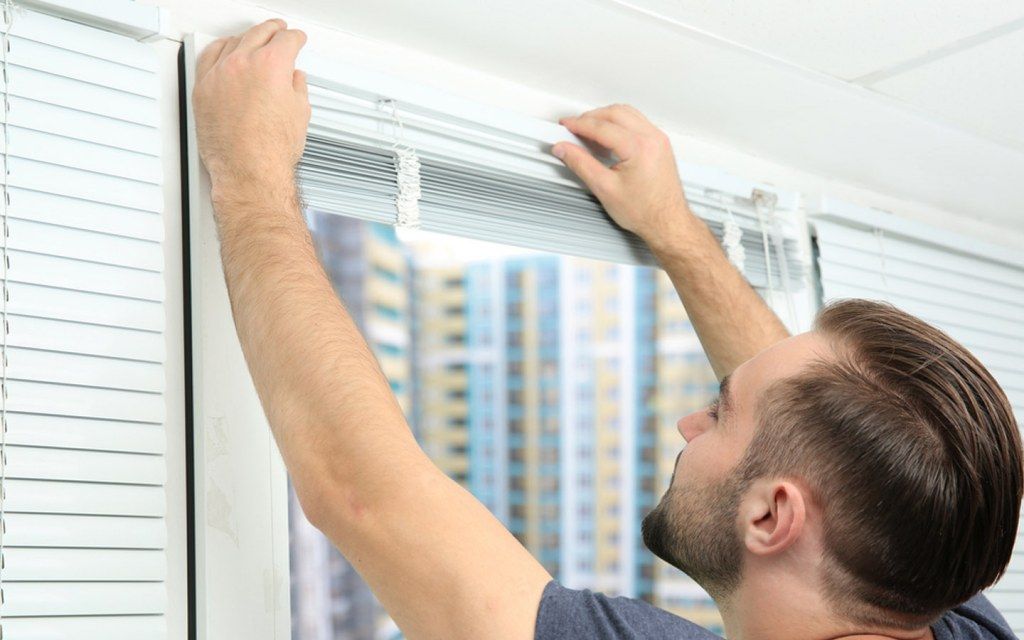
Energy-efficient blinds last longer and work better with proper care.
- Clean blinds regularly to remove dust and maintain reflectivity
- Inspect for gaps or damage that reduce insulation value
- Replace liners or damaged cells when needed
- Adjust usage seasonally: open during sunny winter days, close during hot summer afternoons
Smart Technology and Future Trends
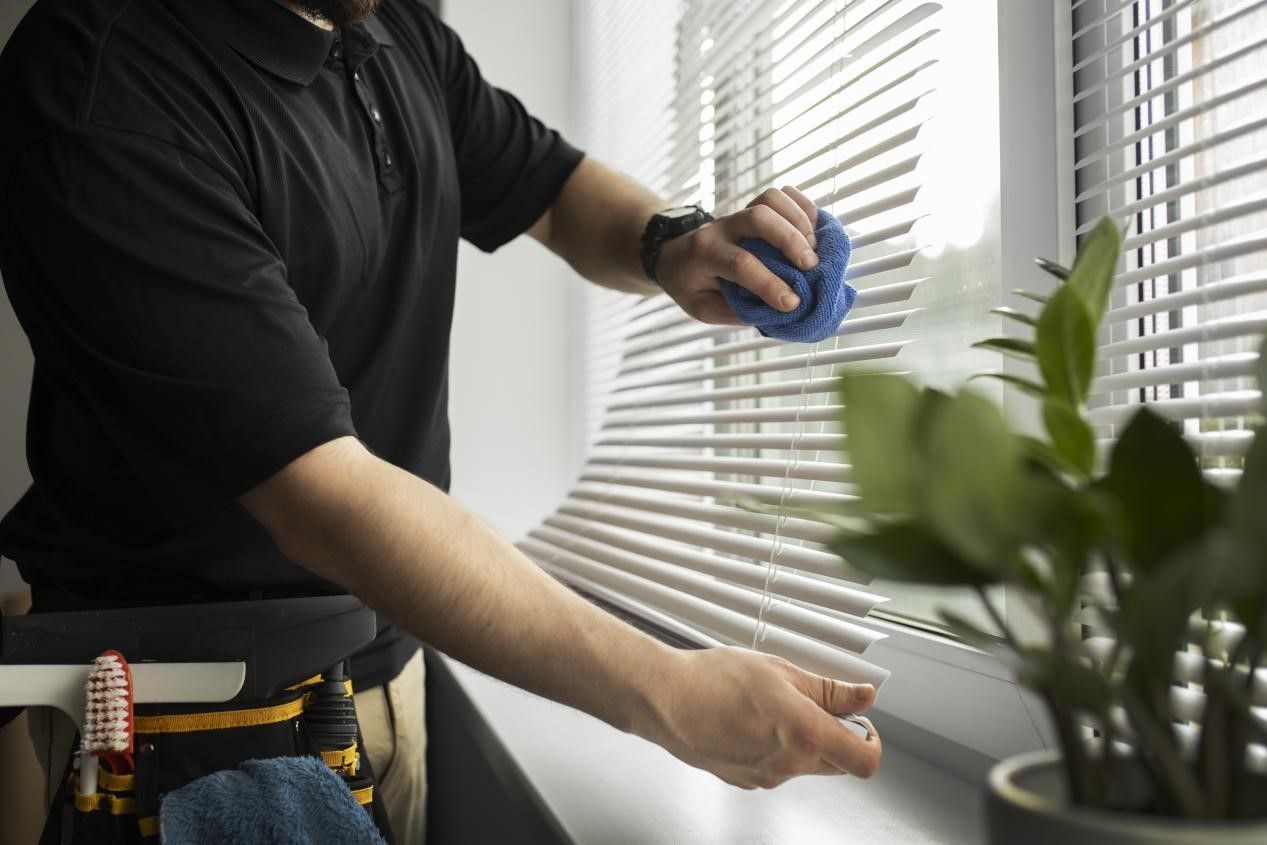
Blinds are evolving with new materials and smart integration.
- Smart blinds now connect with thermostats to adjust automatically, making them one of the most practical
smart blinds for NC homes.
- Materials with reflective coatings improve thermal performance
- Motorization is becoming standard in new builds and remodels
Love Is Blinds NC continues to track innovations to bring practical energy-saving solutions to local homeowners.
Energy-Efficient Window Treatments NC: Key Takeaways
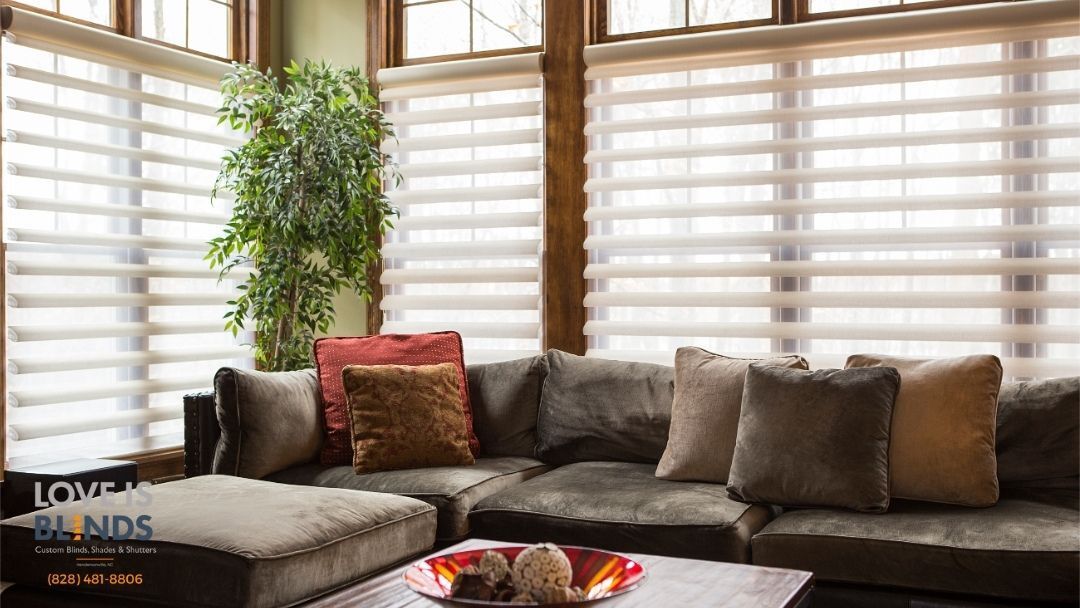
- Cellular shades are the best all-around energy-efficient option in North Carolina
- Solar shades work well in coastal areas with strong sunlight
- Plantation shutters provide insulation and durability in Piedmont homes
- Blackout blinds and thermal linings improve bedroom comfort
- Motorized and smart blinds enhance efficiency and convenience
- Local rebate programs help offset installation costs
By choosing the right energy-efficient blinds, North Carolina homeowners improve comfort year-round, reduce utility costs, and protect their homes from the state’s climate extremes.


